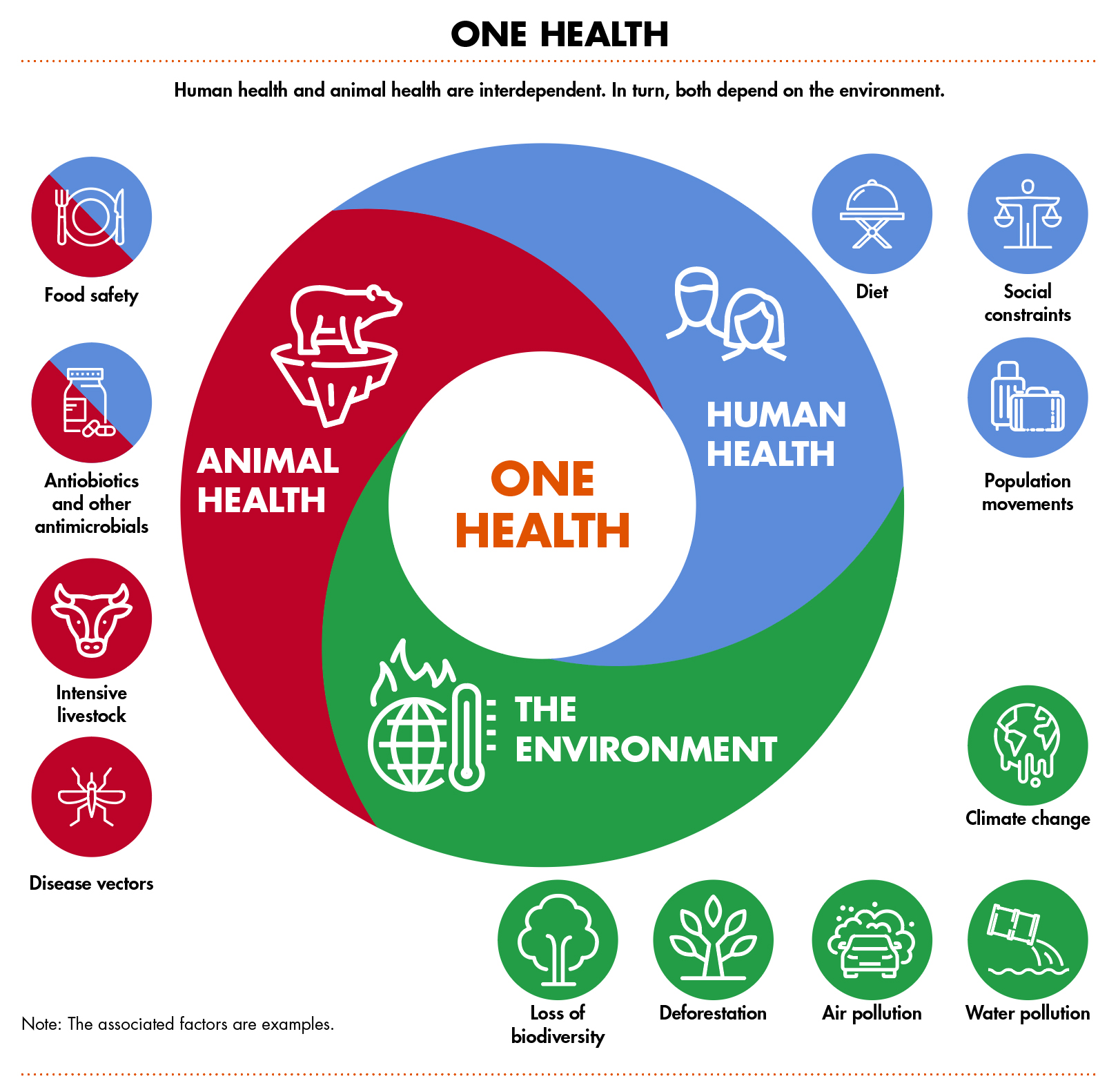
A hyperconnected health
With globalisation and climate change, the One Health concept wants to find a comprehensive approach to health, which includes human health, animal health and the health of the planet itself.
There is a theory that if a butterfly flaps its wings on one side of the world, it could end up causing an earthquake on the other. This theory, involving endless coincidences, could simultaneously show us a surprising level of connection.
On the other hand, it is a fact that in recent years we have normalised diseases such as Ebola, Zika, Covid or Monkey pox; and that we have been passive observers to the appearance of new infections that reach us from anywhere in the world in record time.
A situation without precedents in history, but that we have accepted with resignation and composure. Could it be true that today we are living in a world that is much more connected than we might believe at first sight? Or does what happens in one part of the world have immediate consequences on the other part?
'Zoonotic' disease, the interconnectedness between animals and humans
A zoonotic disease is the name we give to the diseases transmitted from animals to humans, either directly or indirectly, through vectors such as arthropods. Covid-19 was one of these zoonotic diseases with all its inherent repercussions, along with the morbidity and mortality it caused. It is estimated that over 75% of new infections will also be zoonotic diseases. Moreover, there are up to 1.7 million viruses that could leap to the human species over the next few years. The fact is that we do not know the name of the next virus that could appear, nor do we want to know it, but we do know that it is our responsibility as human beings to look after the planet on which we live.
The protection and love of nature that come naturally to indigenous peoples are not only compulsory today, both as respect for the world that is our home and as a legacy to our descendants, but rather they are imperative to be able to turn around the situation we are living in.
The world is, as we have seen, a unit in which we are closely connected; and in which people, animals and the ecosystem are very closely linked. Therefore, global health involves animal, environmental and human health.
One health

The One Health concept is paving the way as a necessary world strategy to approach this problem as a whole and including the planet as a priority factor for global health. A concept that allows us to delve into globalisation, into the importance of sustainable development, animal trade or the possible zoonotic diseases to which we are still exposed.
At the beginning of the year 2000 the World Health Organisation (WHO) introduced this concept to tackle the risks of public health that had increased due to globalisation and climate change. However, over the past few years, in the aftermath of the pandemic, this approach has become a top priority for all international health organisations.
The situation must be approached from a comprehensive, unitary point of view, which allows us to get ahead of future threats and tackle this problem from a prevention perspective, and not as a response to a disease.

